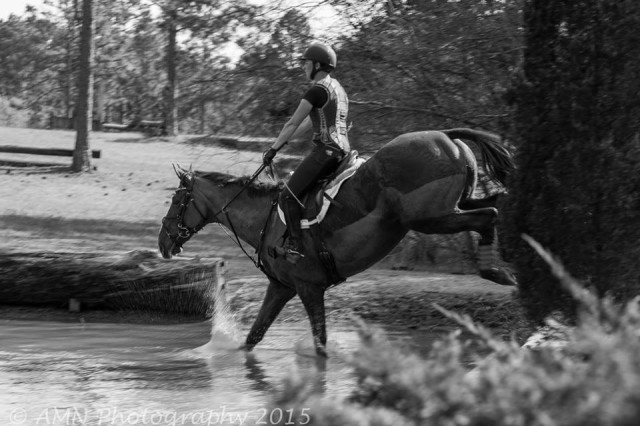Human beings are constantly being judged, critiqued, analyzed, studied and observed by others on a routine basis. Whether you’re handing in a 20-page analytical essay to your professor, or you’re competing against your rival in the 200-meter dash at a local track meet, or you’re being interviewed for a state nutritionist position in Vermont, your skills and your experience will be carefully examined.
Although this statement might come across as very black and white, I would like to be so bold as to say that in life there exist two kinds of individuals: those who are willing to be critiqued and those who are not.
I have learned immeasurable skills in the last nine years while “studying” at Tamarack Hill Farm. My riding as a whole has undergone a serious transformation since I arrived as a timid and oblivious 20-year-old, and I have Denny Emerson to thank for this transformation, as well as a couple other close instructors.
In no way, shape or form do I think of myself as complete as a rider. I am aware of the level I am currently at, and I know there’s a long road ahead of me. I am competitive by nature and being good at something I love will never be acceptable. I am attempting to achieve greatness according to my standards — not Phillip Dutton’s standards or Charlotte Dujardin’s standards — but my own personal standards.
One of the first things I learned while riding at Tamarack is that sugarcoating does not exist. There are the plain and sometimes painful facts and realities, and whether you want to listen and hear those truths is up to you. You can either chose to become a better rider or you can whimper in the corner like a sad puppy who just got scolded. You can either face the cold hard facts, or you can go find somewhere else to ride and someone else to ride with who might be more willing to coddle you.
I cannot tell you how many times I have witnessed firsthand a rider who trucks over for a lesson, or better yet, a working student who chooses to not listen to the advice and the knowledge of someone who has way more experience and knowledge than you’ll ever dream of having. The snide remarks, the rolling eyes and the look like “I actually know exactly what I’m doing, so why don’t you leave me alone” are unfortunately more common than not.
If you ask, or pay someone for their help, their advice and their input, but in actuality you only want to be told how amazing you are and that you are in fact ready to move up to the next level, then you are in for a rude awakening.
I do not understand those riders who are not willing to further their education. If you are competitive and you have any sort of goal, whether you’re comfortable topping out at the Preliminary level, or you’re on your way to Rolex, or you’re just starting out as an event rider, why wouldn’t you be open minded to advice from a variety of different instructors?
I’m not saying that every rider needs to go to a clinic every other weekend or have 15 different instructors, but making yourself vulnerable and seeking instruction will ultimately add more tools to your ever-evolving kit.
Let’s say you are a very confident rider who has solidified their skill sets over the past 15 years. You are recognized as a successful equestrian with a solid foundation. Let’s say a clinician comes along and has some tips and pointers for your riding, even though those tips are seemingly polar opposite than your skill sets. Just because one person has a certain style or an effective way of riding who has been successful does not mean that there aren’t other styles or other effective ways to ride that also simultaneously exist.
What makes YOUR way the right way? What makes THEIR way the right way? Does it come down to personal preference? Does it have to do with how many medals and trophies and giant blue ribbons you possess? Or perhaps how many followers you have on Facebook?
Again, even if you are confident in your style and your way of riding, this does not mean that there aren’t pieces or components of the seemingly polar opposite instructor’s lessons that might be incorporated into your riding. Even if those pieces are not able to be fused into your program, it does not mean that those lessons and that experience was not beneficial. There’s always something to learn, even during a “bad” or “difficult” experience, lesson or clinic.
Bottom line, if any of us want to be successful as event riders or dressage riders or what have you, we have to constantly be seeking more education, whether that information comes from a book or from real life experiences. We have to be willing to learn more, and part of learning more stems from having other experienced trainers help guide us through this process.
Some of these lessons are trying, and some are incredible. Some lessons make you want to curl up in bed and cry while re-scheming your entire purpose in life,and others make you feel like you could actually conquer the world.
We have to be open to new ideas and thoughts and become better critical thinkers. So much of this life seems to revolve around who’s who and who’s the best rider, but what about the good riders with minds that want to absorb information like a sponge? What about those willing to go the extra four miles to better themselves?
We have to be willing to be open-minded, and we have to be willing to be critiqued, whether it’s on a regular basis or it’s only once in a while; we need to put ourselves out there in the world so we can learn through the process of crumbling and rebuilding.




















